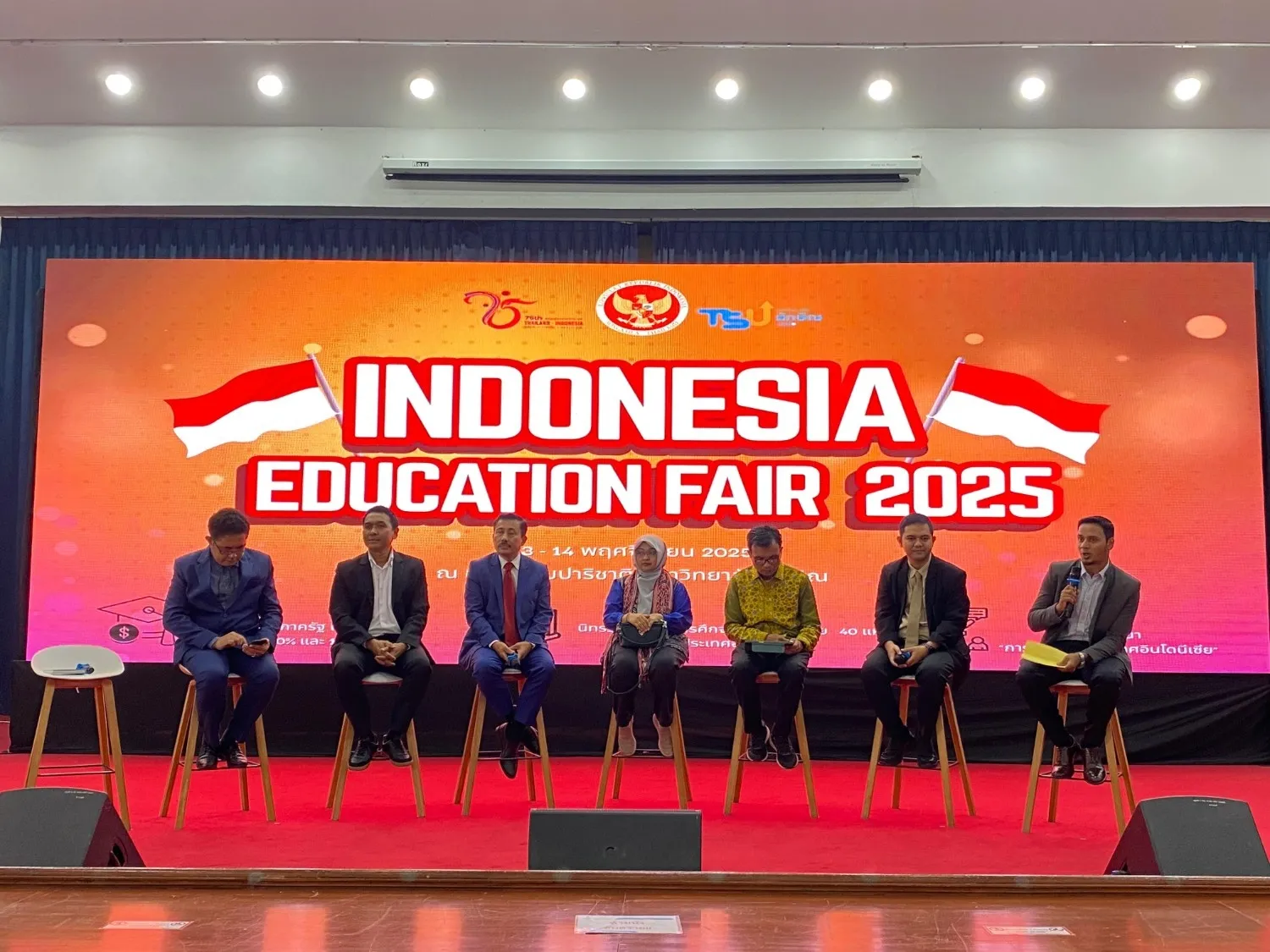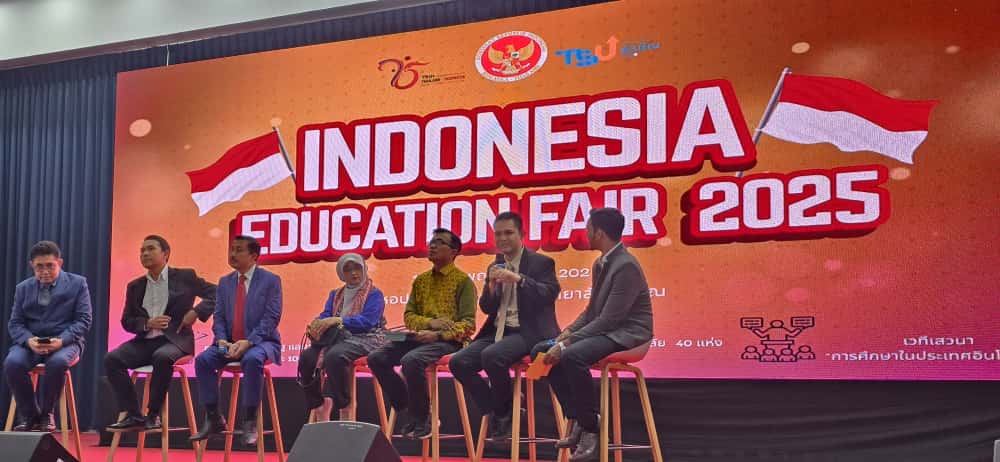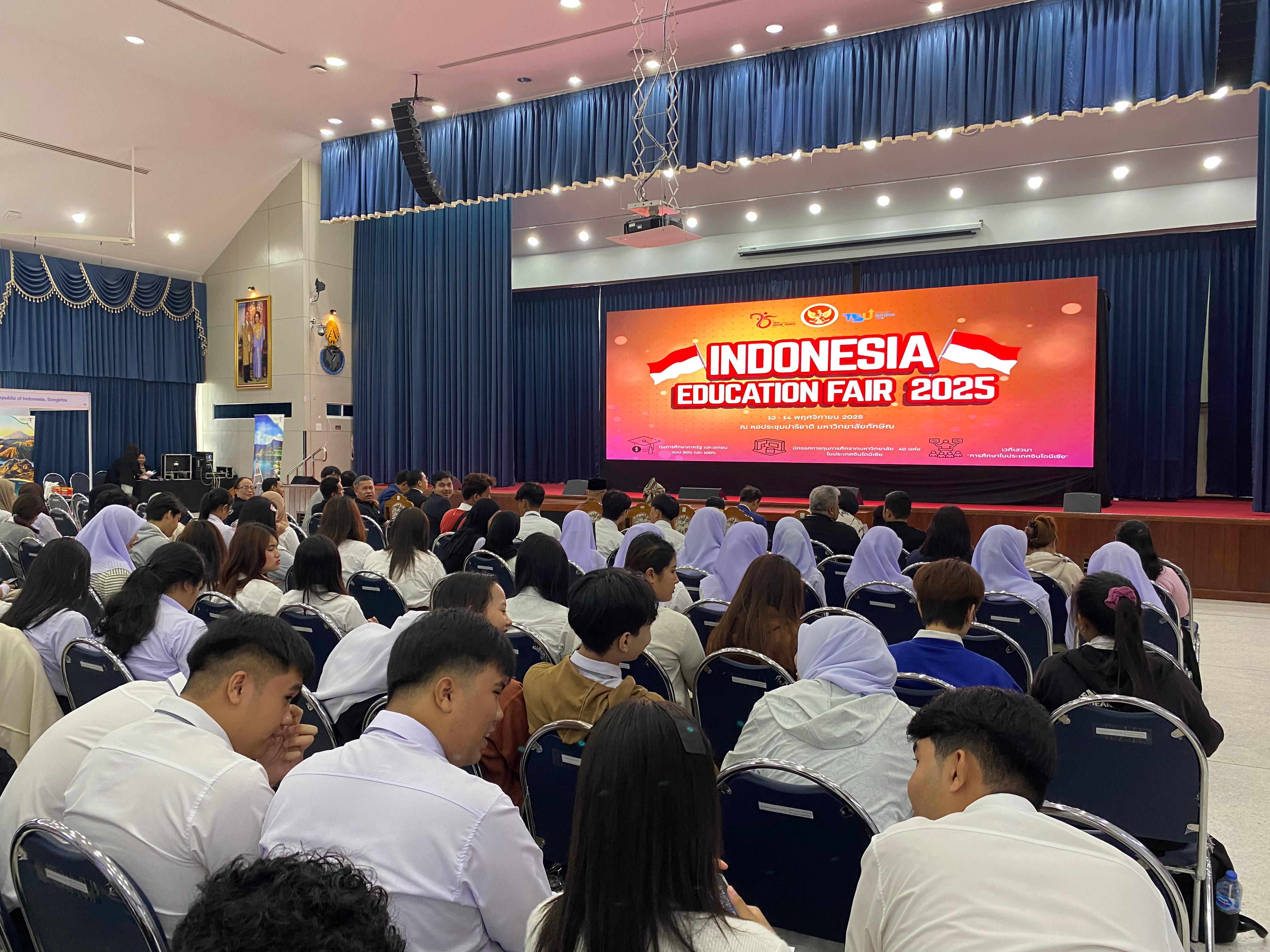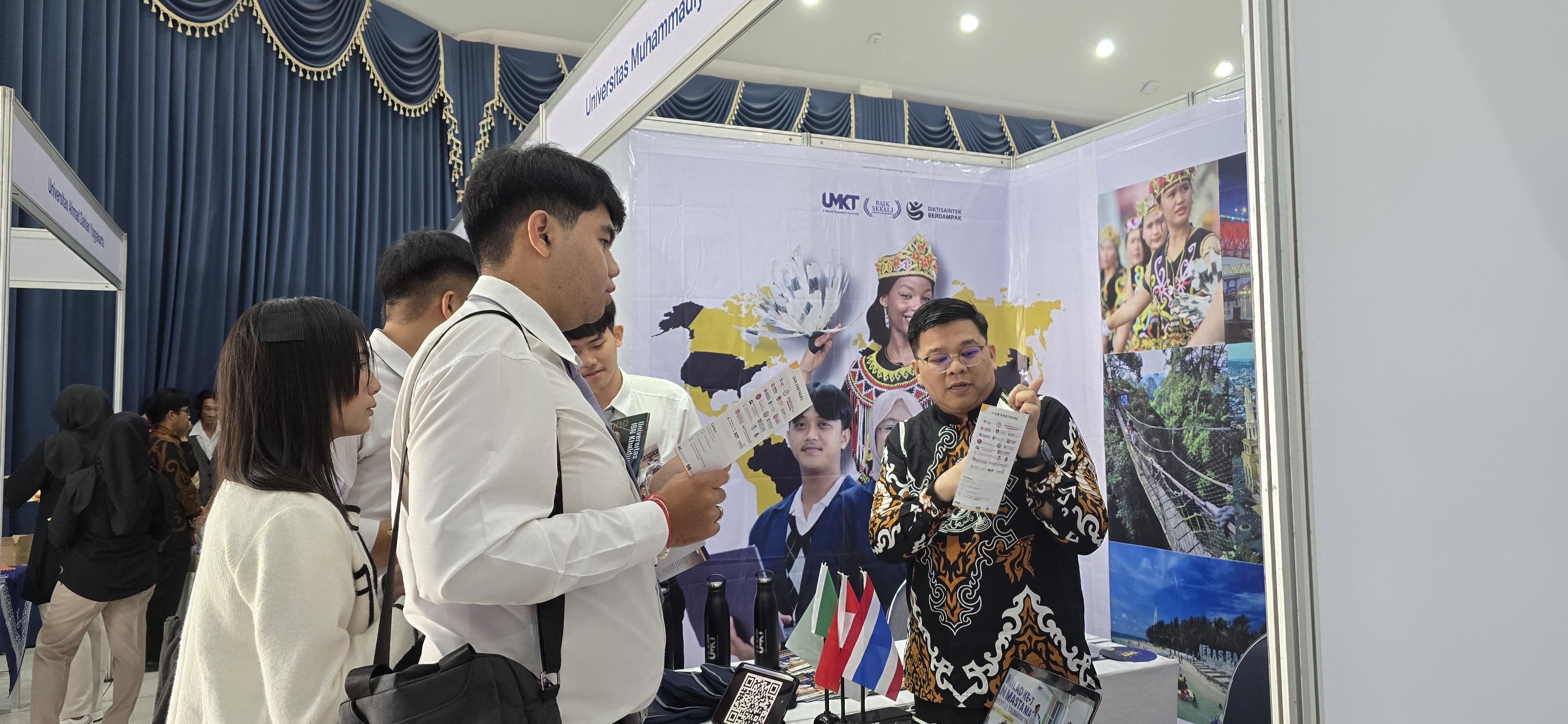UMKT to Enhance Its International Collaboration in Thailand
Penulis: Muhammad Rafly Raihandy

umkt.ac.id, Thailand — Universitas Muhammadiyah Kalimantan Timur (UMKT) once again shown its internationalization capability, attending the Indonesia: Education and Collaboration seminar, hosted by the Consulate of the Republic of Indonesia in Songkhla. The event is held at the Thaksin University Thailand, beginning from November 13 to November 14 2025. This event gathered the leaders of higher education institutions both from Indonesia and Thailand under a single forum discussing cross-country collaboration on the fields of education, research, and academic exchange. Abdul Halim as The Vice Rector of Academic, Quality Assurance, Students, and Alumni Affairs, was invited to speak at the forum, representing UMKT.
“Indonesia is a huge and vast country. UMKT is situated on the island of Kalimantan, precisely in the middle of the Indonesian archipelago. In the near future East Kalimantan will be the gate of entrance to Nusantara, the future capital of Indonesia,” he explained in front of the audience. Halim then emphasized UMKT as the fast-growing university, by doing so prepared itself to answer the challenge of the strategic location of East Kalimantan Province as the gate to Nusantara Capital City (NCC).
At the forum, Halim also discussed the advancement of artificial intelligence and its consequences toward human activities. According to him, technology has to be developed in accordance with human values, in an attempt not to diminish the real essence of human beings.
“UMKT takes a strategic role amidst the rampant use of AI. Humans are different from technology: AI does not have humanity values, notwithstanding humans do have them. In this context, humanity is the way we communicate, how our sensory responses, as well as how we see the world and collaborate with others,” Halim further explained.
He also put a spotlight on the importance of collaboration and cooperation, that is, important in facing an ever-changing world. By doing so, institutions can explore their strengths and weaknesses.

On another occasion, Halim delivered his gratitude to Thaksin University, which opened itself for collaboration with various universities in Indonesia. He asserted that, despite the young age of UMKT, it has attracted lots of students from all over the world and is consistently developing itself to comply with international standards.
“The similarities between Thaksin University and UMKT, that of both institutions, provide an international-based campus atmosphere. We always encourage our students to collaborate with foreign institutions,” said Mr. Halim.
As of today, UMKT has cooperated with various institutions across Asia and beyond, including universities from Malaysia and South Korea, including collaboration to provide double degree and joint degree programs . Therefore, at the forum, UMKT hoped that in the near future, a cooperation between UMKT and Thaksin University would be made possible. As a commitment in making cooperation possible, Halim also brought the staff from the UMKT International Relations Office to the forum, should Thaksin University be interested in cooperating at the moment's notice.
At the forum, Halim also emphasized that UMKT is open not only for students' mobility, but also for academic staff, i.e. lecturers or other scholars’ mobility from various overseas institutions. Halim also affirmed that UMKT is open for overseas lecturers to be guest lecturers, both on offline and online guest lectures, in doing so enriching students with invaluable experience, as well as broadening cross-country networking among scholars.
“Besides mobilizing students abroad, UMKT expects that the international academic environment can be brought home by inviting overseas lecturers to its campus, with the intention of sharing the international experience to students, without having to go abroad,” Halim stated at the forum.
At the end of the forum, Halim showcased UMKT’s comprehensive internationalization program as a huge advantage in becoming one of the most progressive universities in East Kalimantan. UMKT invites its students, as well as its teaching staff, to be involved in programs that are conducted abroad.

“UMKT provides both non-degree and various degree programs for its students, including joint and double degree programs. We also prepared various internationalization programs aiming to raise students’ interest in studying overseas,” Halim further explained.
In addition, UMKT held a huge commitment in bolstering collaborations on international research and publication. According to Halim, the enormous Indonesia’s scholar manpower makes it very potential for cross-country collaborations, in doing so making both Indonesia and Thailand to become the world’s scholarly powerhouses.
“We invite Thai scholars to conduct co-researches with Indonesian scholars. Considering both Indonesia and Thailand have a lot of similarities, I am sure the collaboration can run smoothly and create a massive impact on society,” Halim concluded.

Besides UMKT, this forum is also invited board members of several universities from Indonesia and Thailand, such as Bandung Institute of Technology, Universitas Muhammadiyah Malang, Universitas Pembangunan Nasional Veteran Jakarta, Universitas Islam Negeri Imam Bonjol Padang, Universitas Nahdlatul Ulama Jepara, and Rajamangala University of Technology Srivijaya.
By attending international events, UMKT emphasized its determination as a university that is adaptive to the ever-developing world, as well as asserted its roots to adhere to humanity values. Through cross-country collaboration, UMKT is expected to broaden its roles in building a competitive and global-based higher education ecosystem.
Writer: Raisha Azzahro.
Translator into English: Muhammad Rafly Raihandy